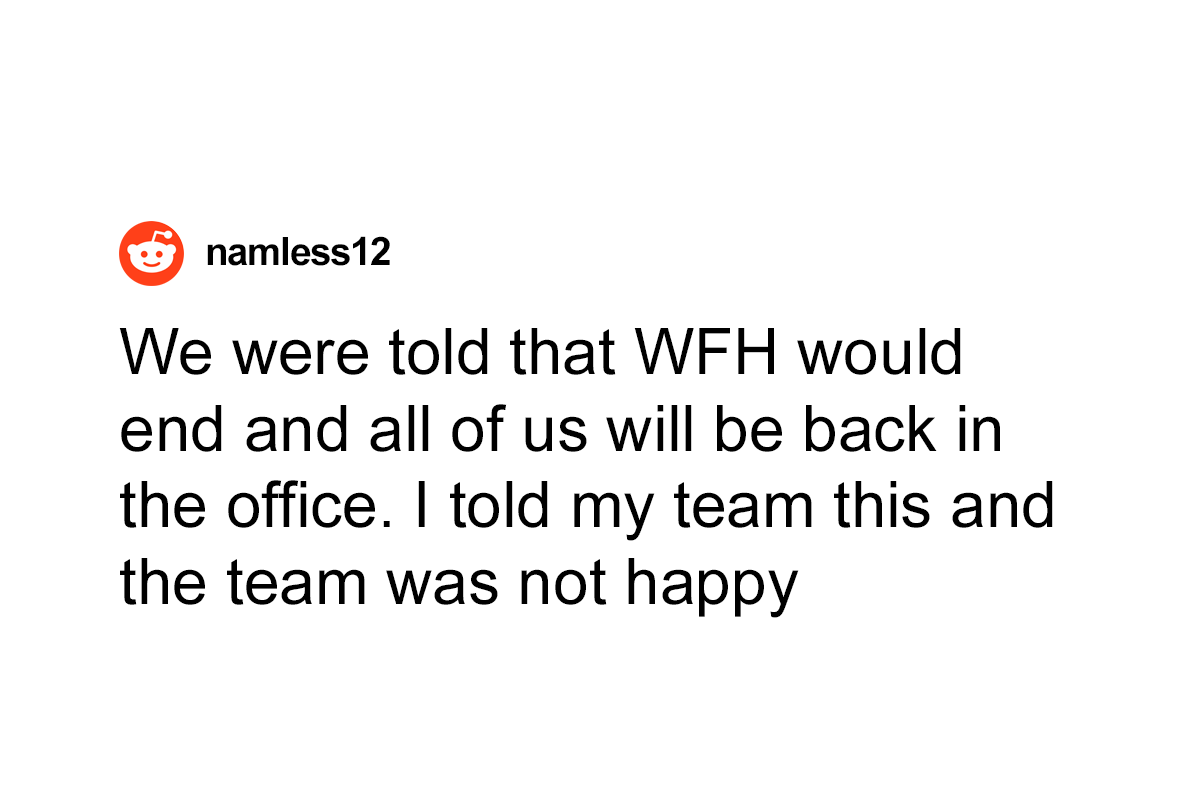
Clueless Director Calls For A Meeting Over Mass Resignation After Company Cancels WFH, Employee Explains It In A Way He Would Understand
Working from home vs working from the office is a sore topic for plenty of workplaces. It’s also a source of tension and deep-seated resentment between many employees and their bosses. While some companies have found what works for them and have either embraced fully-remote work or a hybrid system that (arguably) picks the best of both worlds (though it’s still a work-in-progress), others demand that their employees show up at the office every single day. Naturally, many workers are resisting this (especially the ones who are getting good results and are more productive with a bit more flexibility).
Some employees are prepared to protect their interests and they don’t mind quitting and finding other, better jobs at competing firms. Instead of grumbling about how things could be better, they’re prepared to put their careers on the line for a better future. And to avoid those darn long commutes. One redditor, a mid-level manager at an IT company, shared what happened when their boss announced that they’ll be abolishing WFH.
Resignation after resignation made the project director very angry. However, the manager, the author of the viral r/antiwork post, took them aside and explained to them why exactly working from home is such a huge deal for many of their employees. Scroll down for the full story in the redditor’s own words. When you’re done, share your thoughts in the comments, and let us know what kind of system your job has embraced, and what works best for you personally, Pandas.
Whatever your personal feelings about working from home, you can’t deny that some employees prefer it and find it better for their productivity
Image credits: Chris Montgomery (not the actual photo)
A manager at a major IT company shared how their coworkers reacted when upper management decided to get rid of WFH and pushed everyone to return to the office
Image credits: Headway (not the actual photo)
What stings the most is the fact that there’s a double standard in play here. ‘Ordinary’ employees are supposed to waste their time commuting to the office while management still has the freedom to work as they like. That kind of injustice really gets people’s blood boiling. Especially when they’ve been delivering good results.
Once you realize how much time you save by not having to drive, bike, or walk to the office, it’s incredibly hard to go back. Many employees feel like they have far more time and energy if they get to work from home at least some of the time. Why bother being stuck in a traffic jam when you could be spending time with your loved ones or working on your hobby?
Recently, Bored Panda analyzed the entire WFH situation with workplace expert Lynn Taylor, the author of ‘Tame Your Terrible Office Tyrant: How to Manage Childish Boss Behavior and Thrive in Your Job.’ She was very open about the fact that working from home has its downsides, not just all the plentiful upsides. Part of effective communication with management entails understanding where they’re coming from, too.
“Employees have had a taste of remote work and for many, it’s hard to go back to a traditional work environment. This has been underscored by the Great Resignation. Employees have seen productivity benefits; better focus; no commute time; and less on-site politics and gossip,” she told Bored Panda during an interview.
“That’s not to mention the fact that they can better attend to family and personal matters. This greater work-life balance and flexibility is a major stress reducer—and for many, is even worth a pay cut, if not a job change.”
Meanwhile, here are some of the downsides of WFH that the workplace expert noticed: “Some managers do need their employees on-site, especially those where required face-to-face interaction with customers or other employees is necessary. In addition, when everything is left to offsite work, there is a loss of spontaneity and the human bond that occurs when you’re physically visible. And a larger human need is to build something impactful together, as a team or ‘community.” She noted that some employees can feel increasingly isolated and depressed when they don’t have these interactions with their coworkers.
“Further, more junior employees don’t get the benefit of observing mentors and managers in action, or solving spur-of-the-moment problems real-time. There is much more to advancing in your career than interfacing with people on a screen. Social skills, diplomacy and other lifelong emotional intelligence abilities are likely being adversely affected for those in the early stages of their career,” the expert shared with Bored Panda.
“All that said, this new work paradigm has revealed just how much can be accomplished digitally, much to the surprise of those at every level. It also demonstrates that much of what corporate America thought was a necessity, is no longer. Many companies are happy to reduce their real estate expenses, as well. The remote work revolution is putting productivity under a microscope. A digital relationship removes virtually all personal aspects good or bad. It removes downtime from a traditional work environment, such as water cooler chit-chat. But some could argue it also removes camaraderie,” she said.
Introducing a hybrid WFH-office system at the company could help balance everything out and give workers access to most of the upsides with fewer downsides. You’d be able to interact with your colleagues while also having the opportunity to work in your home environment where you can (of course, depending on the person) focus more easily.
“Whether it’s a hybrid environment or working from home, employees will need to make an extra effort to communicate often with their managers—and regularly keep them apprised of project status. This is not just good business, it protects job security and means better results,” Lynn explained to us, adding that if you’re good at your job, it’s the best way to maintain job security.
“The downsides of remote work can be mitigated with a hybrid work environment. This allows the best of both worlds. And it appears more advantageous than, say, a four-day workweek, which can result in people working later hours or overtime, regardless. If they end up working on a fifth day to keep pace, it defeats the purpose, such as when clients or vendors need to reach them on that extra day,” she shared.
“Regardless of the state of the economy, the work from home landscape is creating more project workers and consultants. Because of the positive experience working from home, many have now shifted to independent work, especially when employers have insisted they return full-time. Employers may lose valued talent to this alternate option by not offering the flexibility of remote work,” Lynn said that some workers choose to look for employment elsewhere if WFH is no longer an option.
“Of course, any employee that abuses the privilege of working offsite won’t remain long-term at any company,” she once again stressed that good job performance is the key factor when asking management for a more flexible system.
The OP shared some more of their thoughts in the comment section of their r/antiwork post
And here’s what some other internet users said about the pros of working remotely
1.7Mviews
Share on FacebookIn the U.S. pre-covid, so many people had jobs that required 8-10 hours/day in the office, even when there wasn't that much work to fill he time. People would sit at their desks doing online shopping or scrolling through social media for hours on their work computers. Yet these same companies are now worried that their WFH employees might fold some laundry or walk their dog on company time.
I never understood the mindset that *only* work must be done on company time. As long as the work gets done and done well, as it obviously has been, then what's the damn problem? People *cannot* be constantly in motion. There must be time to pause, reflect, and heaven forbid THINK. That may occur during a walk, playing a game of solitaire, or playing with a pet for a couple of minutes. The bosses do it all the time. They're greedy bastards who feel that any employee who takes a moment is 'stealing' from them. This almost makes me happy that I *cannot* work because of several disabilities~~I don't have to deal with those asses.
Load More Replies...my job tried to bring us all back full time to the office, i was absolutely miserable and didn't hide it. a month later, we were told we only needed to come in 1 day week for department meetings, and 1 day a month for a company meeting. plus they gave me a raise and another week of vacation. i have since stopped looking for another job. :)
With us, we've got a blend of people who have to be in the facility and people who can easily do their job totally remotely, plus some who work best splitting things up. I'm in the middle group - when they suggested I should look at returning to the office a few days a week, I tallied up how much time I'm not spending driving every month, plus mileage at federal rates and suggested if they could figure out a way to give me that many dollars and that many hours off for every day I was in the office on a schedule, we'd be able to reach an agreement. That said, if something comes up where I think I could do the job better from the office, I'll go in, I just don't want it to be part of my daily schedule anymore.
Load More Replies...have been working from home since before the pandemic. i regain 3 hour commute time. My employer pays less in electricity, water, coffee, facility management, heck less toilet paper and soap if you really want to get down to it. They gain extra time worked because I don't have to dash out the door to get my train. less time off because I can get to my doctor and back online in a fraction of the time. Win win folks. Those that want you in are so they can justify their office space and watch what you are doing. Easily done without standing over me.
This comment is hidden. Click here to view.
Load More Replies...In the U.S. pre-covid, so many people had jobs that required 8-10 hours/day in the office, even when there wasn't that much work to fill he time. People would sit at their desks doing online shopping or scrolling through social media for hours on their work computers. Yet these same companies are now worried that their WFH employees might fold some laundry or walk their dog on company time.
I never understood the mindset that *only* work must be done on company time. As long as the work gets done and done well, as it obviously has been, then what's the damn problem? People *cannot* be constantly in motion. There must be time to pause, reflect, and heaven forbid THINK. That may occur during a walk, playing a game of solitaire, or playing with a pet for a couple of minutes. The bosses do it all the time. They're greedy bastards who feel that any employee who takes a moment is 'stealing' from them. This almost makes me happy that I *cannot* work because of several disabilities~~I don't have to deal with those asses.
Load More Replies...my job tried to bring us all back full time to the office, i was absolutely miserable and didn't hide it. a month later, we were told we only needed to come in 1 day week for department meetings, and 1 day a month for a company meeting. plus they gave me a raise and another week of vacation. i have since stopped looking for another job. :)
With us, we've got a blend of people who have to be in the facility and people who can easily do their job totally remotely, plus some who work best splitting things up. I'm in the middle group - when they suggested I should look at returning to the office a few days a week, I tallied up how much time I'm not spending driving every month, plus mileage at federal rates and suggested if they could figure out a way to give me that many dollars and that many hours off for every day I was in the office on a schedule, we'd be able to reach an agreement. That said, if something comes up where I think I could do the job better from the office, I'll go in, I just don't want it to be part of my daily schedule anymore.
Load More Replies...have been working from home since before the pandemic. i regain 3 hour commute time. My employer pays less in electricity, water, coffee, facility management, heck less toilet paper and soap if you really want to get down to it. They gain extra time worked because I don't have to dash out the door to get my train. less time off because I can get to my doctor and back online in a fraction of the time. Win win folks. Those that want you in are so they can justify their office space and watch what you are doing. Easily done without standing over me.
This comment is hidden. Click here to view.
Load More Replies...
 Dark Mode
Dark Mode 

 No fees, cancel anytime
No fees, cancel anytime 



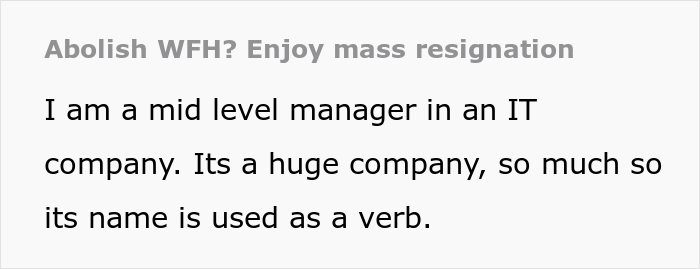
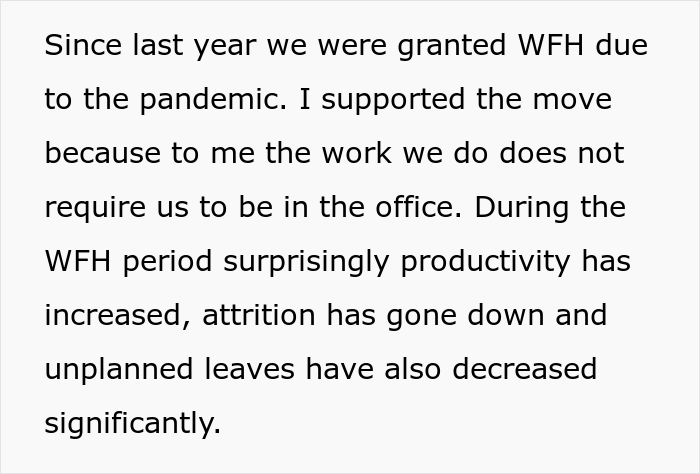
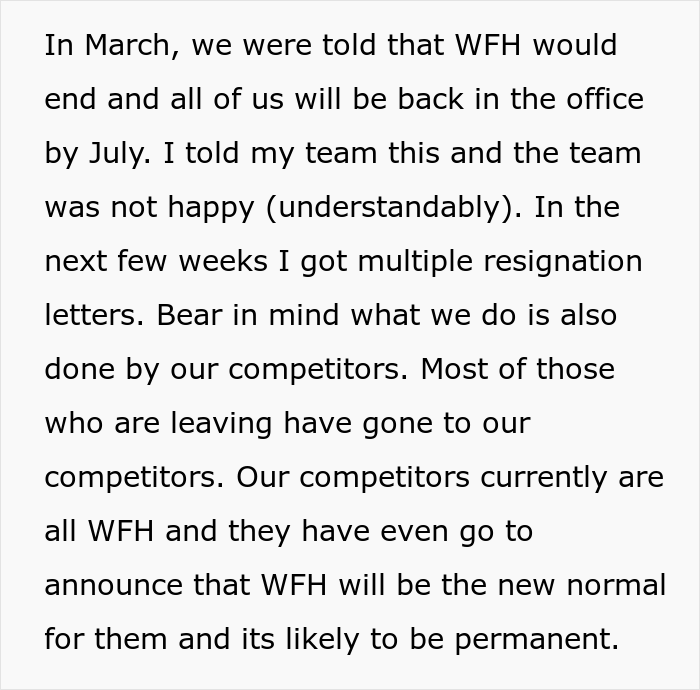
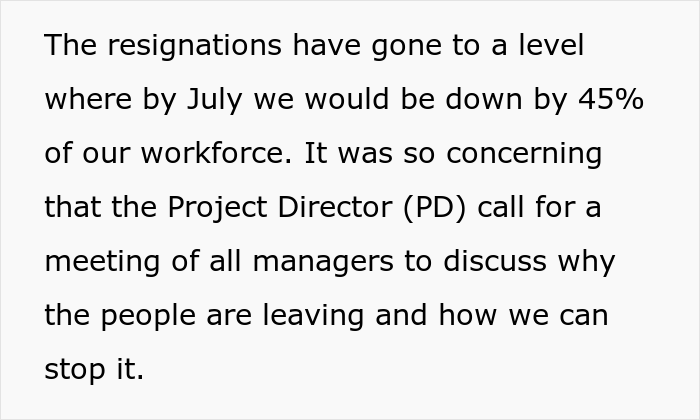
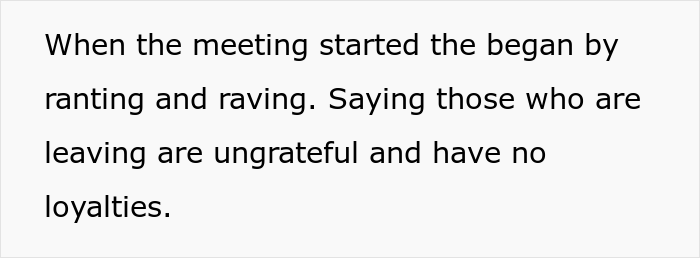



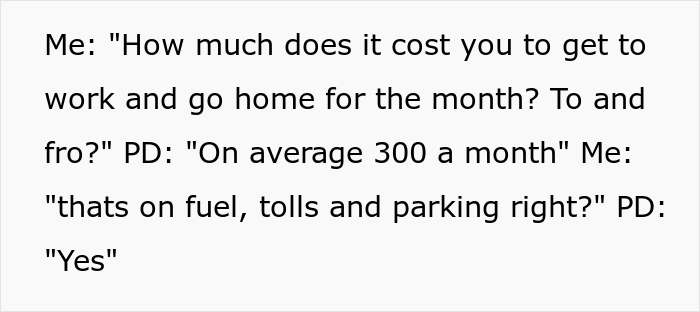


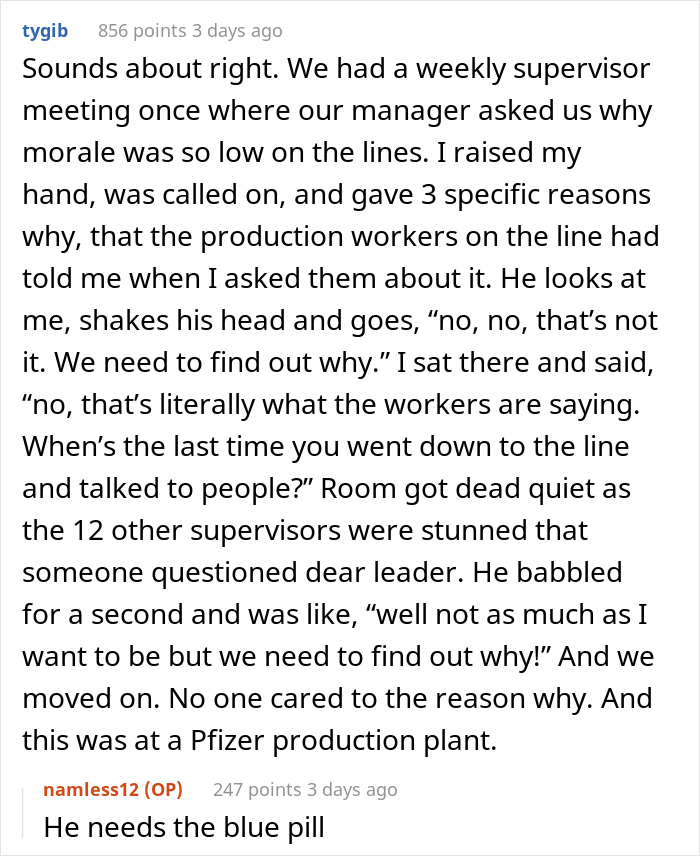
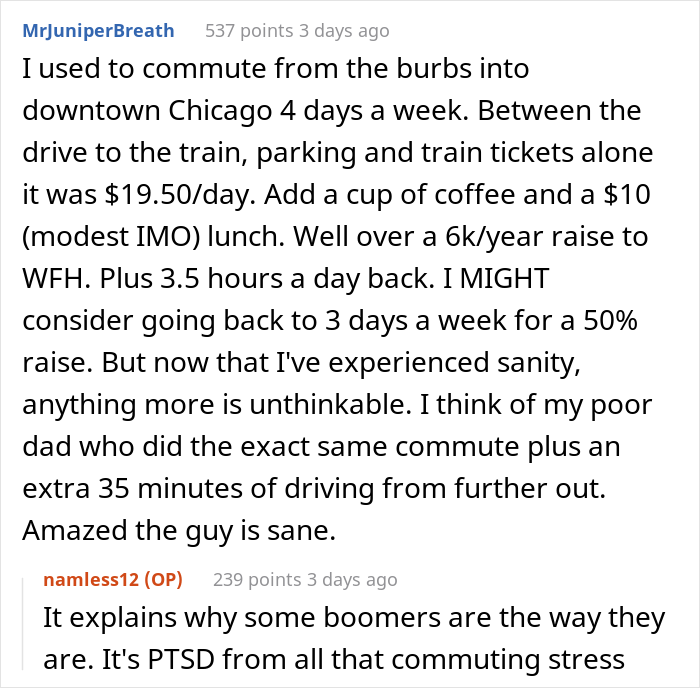
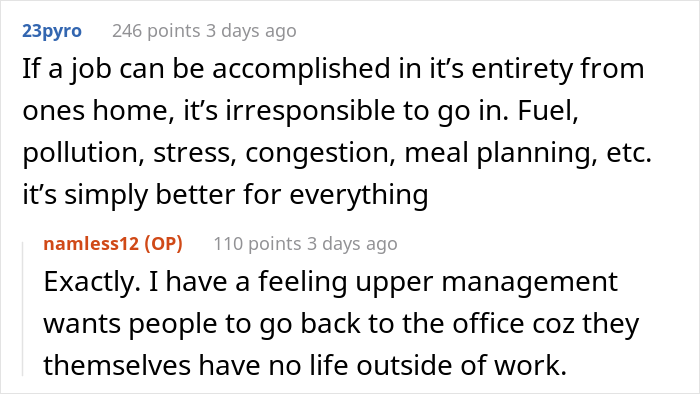
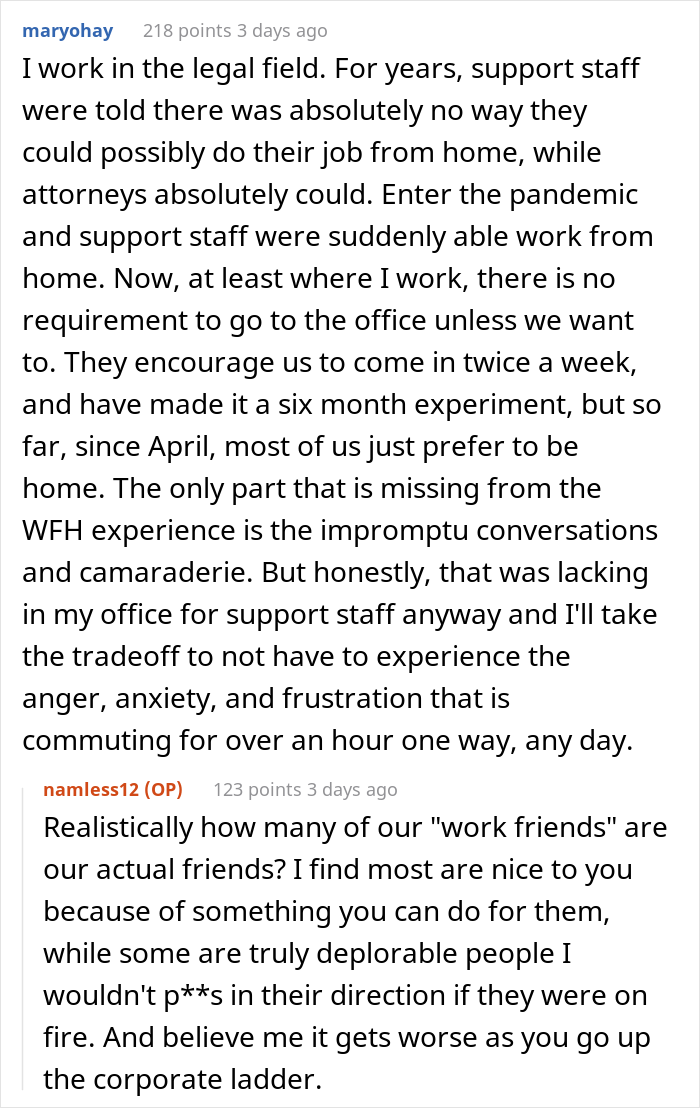

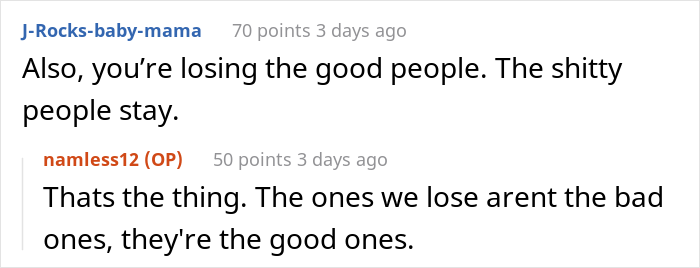
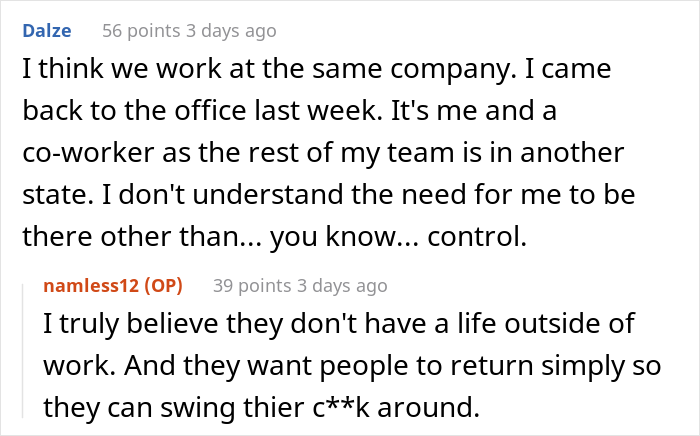
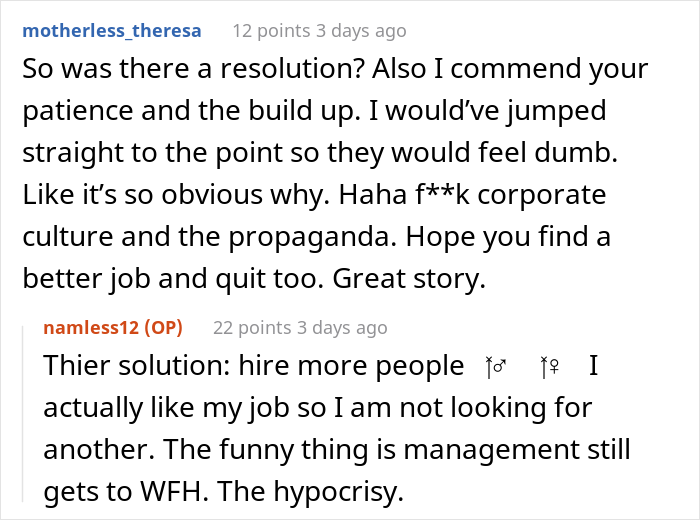

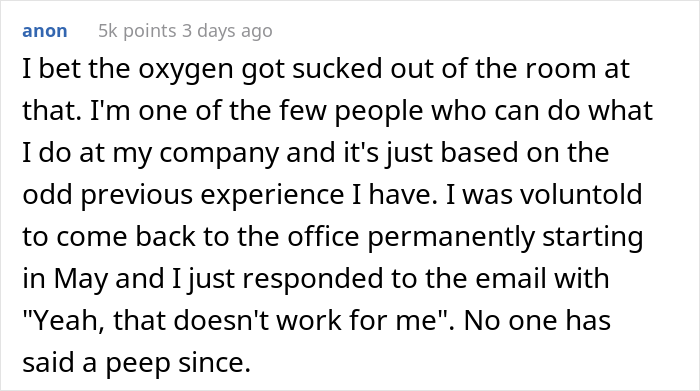
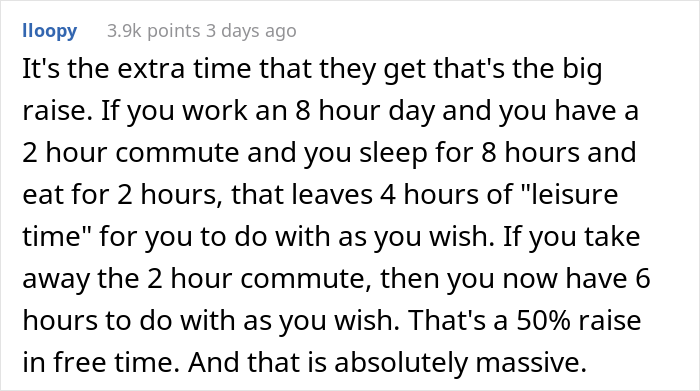
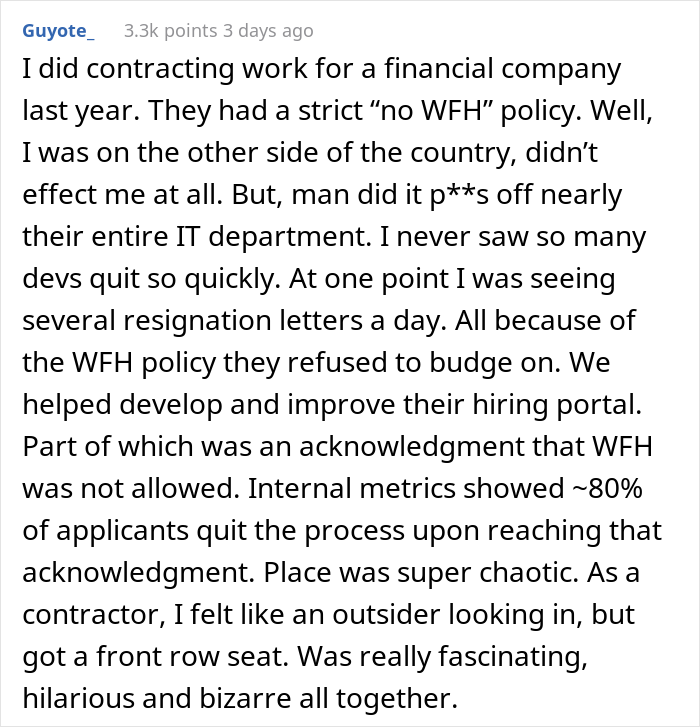
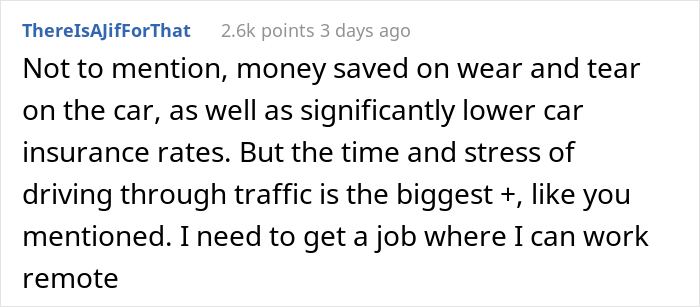
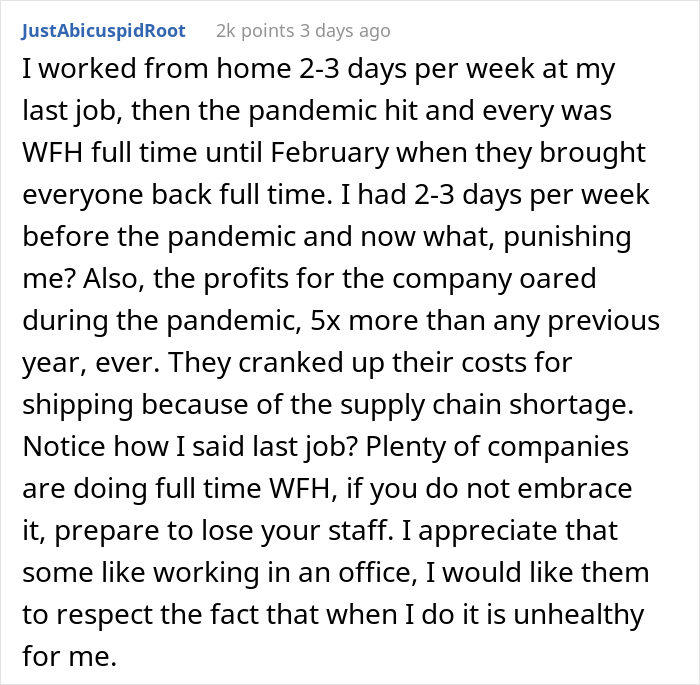
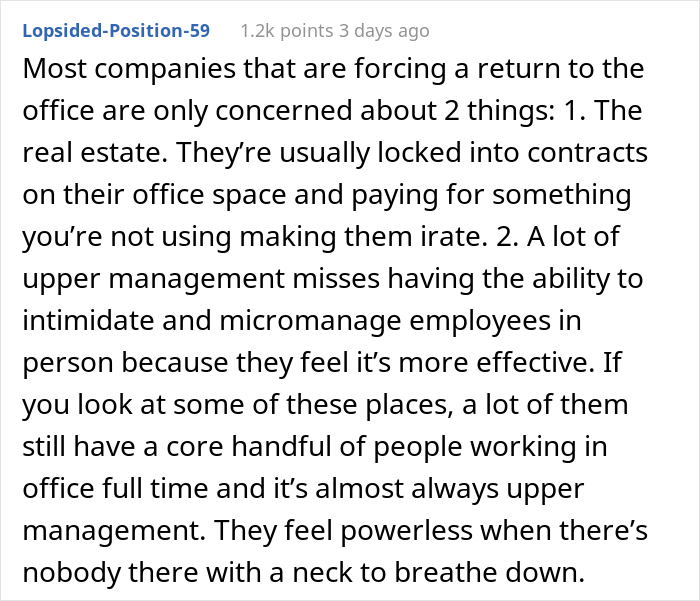
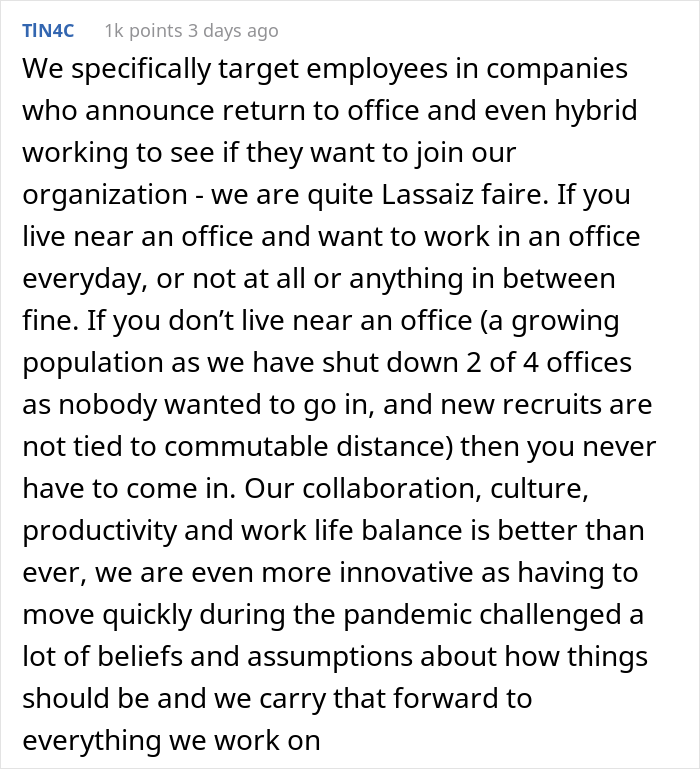

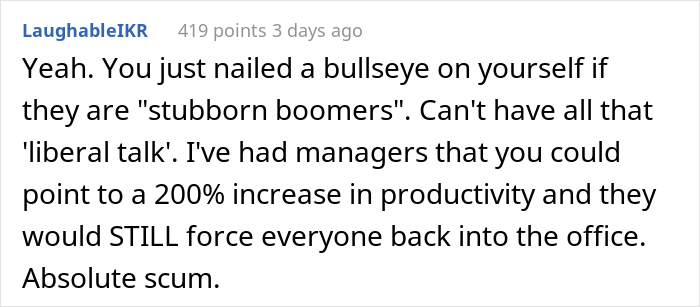

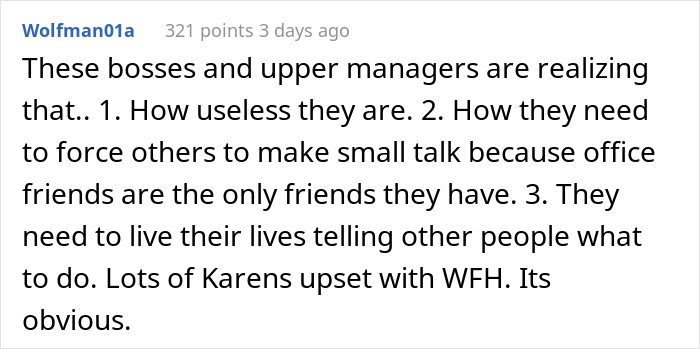














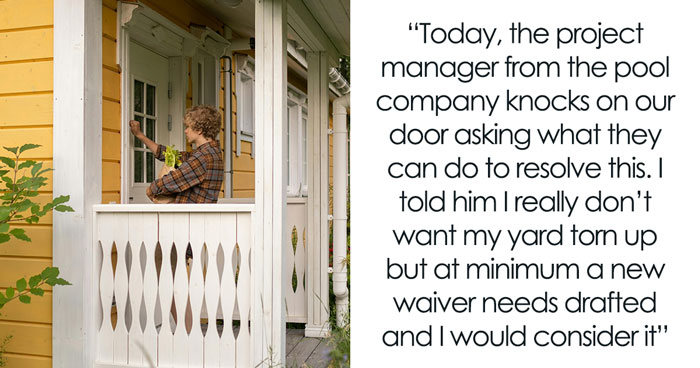




139
153